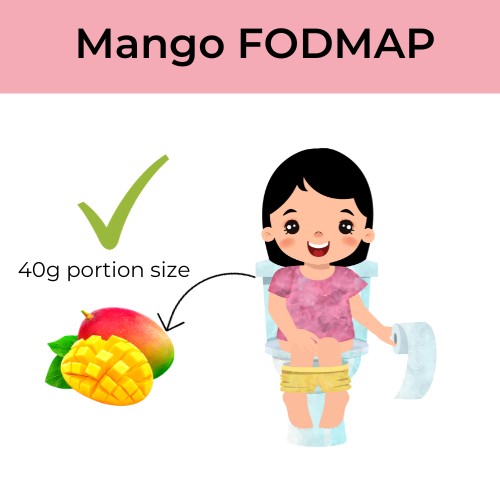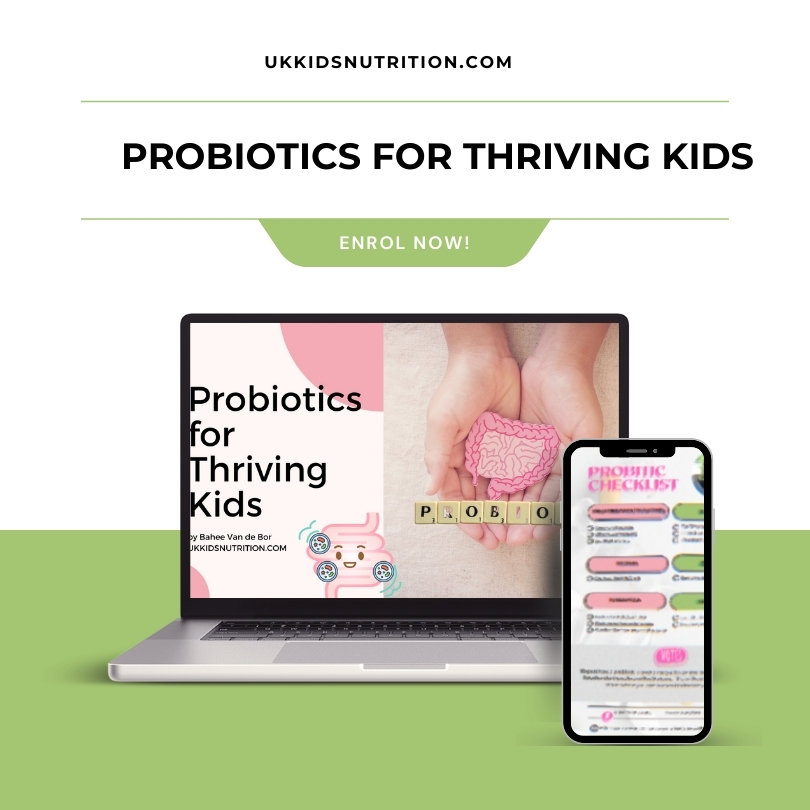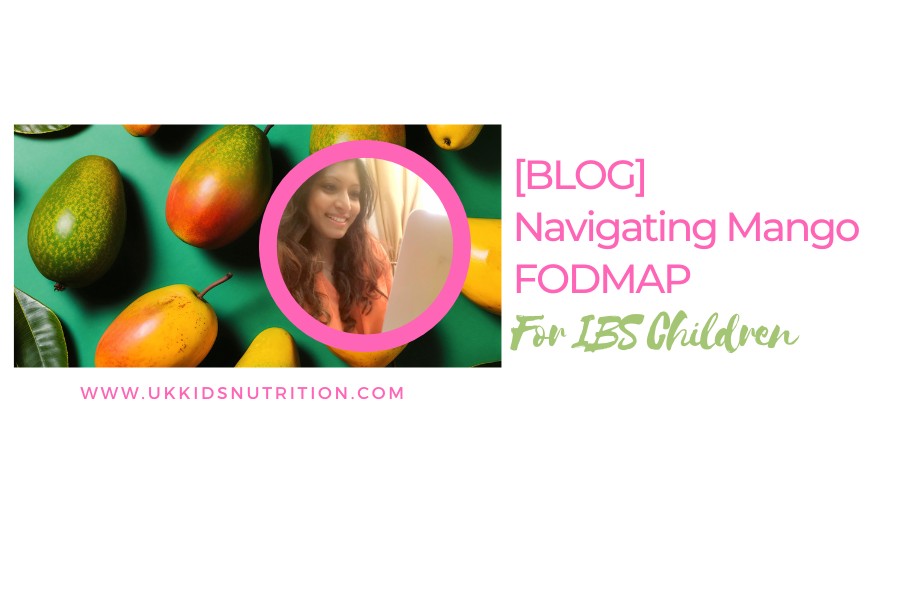Table of Contents
Mangoes, with their rich, sweet flavour, often bring to mind images of tropical bliss.
Unfortunately, for those navigating a low FODMAP diet due to irritable bowel syndrome (IBS), these delicious fruits present a sweet dilemma.
Beloved by children and adults alike, mangoes are paradoxically high in FODMAPs, compounds that can trigger digestive discomfort in sensitive individuals.
This juxtaposition raises a common question among parents: how do mangoes fit into a low FODMAP diet for children with IBS?
As we unravel the complexities of mangoes in the context of FODMAPs, let’s explore how this beloved fruit can be both a treat and a challenge for young tummies.

Decoding FODMAPs: Their Role in a Mango Fodmap Diet
FODMAPs, short for Fermentable Oligo-, Di-, Mono-saccharides, and Polyols, are small carbohydrates present in many foods, including fruits like mangoes.
In the context of IBS, these FODMAPs can attract water into the gut and ferment, leading to symptoms like bloating, constipation, IBS diarrhoea or toddler diarrhoea.
Understanding their impact is crucial, particularly when considering mangoes in a child’s modified FODMAP diet.
Such diets, usually temporary, help pinpoint triggers in IBS.
Given children’s unique dietary needs, it’s vital to manage their intake of foods like mangoes under expert guidance for overall health and growth.

Mango FODMAP explained: A Parent’s Guide
As we explore low FODMAP diets, mangoes often emerge as a topic of intrigue, especially given their natural sugar content.
It’s the fructose in mangoes that we need to watch out for when feeding your child with IBS.
Thankfully, Monash University has shed some light on this.
They tell us that in small amounts, mangoes are perfectly fine for a modified FODMAP diet trial.
A child-friendly portion? Up to 40g of fresh mango is good to go.
This amount keeps it in the low FODMAP zone.
If your child adores mangoes as much as mine do, then larger portion sizes could stir up IBS symptoms like diarrhoea and tummy pain.
Now, for the fun part: mangoes aren’t just a tasty treat; they’re also a fantastic way to spice up your child’s diet.
Think of whipping up vibrant smoothies using dairy products like kefir, or add a dash of tropical flair to salads.
And for those avoiding lactose or dairy, mangoes work wonders in dairy-free smoothies or desserts with milk alternatives (you can use oat milk).
Just remember, portion size is key.
Keep it measured and mangoes can be a delightful, IBS-friendly addition to your child’s meals.

Dried Mango FODMAP Content
When it comes to dried mango, it’s a different story.
This snack is high in FODMAPs because it’s a significant source of fructans.
Fructans, a type of carbohydrate, tend to be more concentrated in dried fruits like mango.
If your child is sensitive to fructans, it’s wise to limit dried mango.
Keeping an eye on such ingredients can be crucial in managing their IBS symptoms effectively.
Discover tasty low FODMAP snacks here.
Alternative Dried Fruit to Dried Mango
If you love baking with dried fruits but need to avoid dried mango, here are some IBS-friendly alternatives:
- Dried cranberries
- Goji berries
- Mixed citrus fruit peel
These options offer delightful flavours for your baking creations, without the high fructan content typical of dried mango.
These alternative dried fruits are better choices for children with fructan sensitivities.
Mango Juice in a Low FODMAP Diet
When it comes to mango juice, there’s a good chance it’s high on the FODMAP scale.
Think about it: even a tiny bit of fresh mango is limited, and the juice form is much more concentrated.
Also, let’s not forget – fruit juice is full of free sugars.
Too much free sugar can increase the risk of dental caries in our little ones.
A smart move? Keep fruit juice servings to about 120ml, and always think about diluting it with water.
If you’re looking for a safer bet, orange juice is a great alternative to mango juice – it’s kinder to teeth and tummies alike.

Mango Powder (Amchur) and Its FODMAP Twist
When it comes to mango powder, or Amchur, as it’s known in Indian cuisine, a little goes a long way on a low FODMAP trial.
Just a teaspoon of this tangy spice can add that zing to your dishes without going overboard on FODMAPs.
So, next time you’re jazzing up a curry or a marinade, remember to stick to just a teaspoon of Amchur.
Alternatively, for mango powder substitute, consider using lemon juice, tamarind paste or tomato puree.
It’s all about that flavour without the fuss!
Fruit Substitutes for Children on a Low FODMAP Diet
Finding a substitute for mango for children on a low FODMAP diet can be a bit of a puzzle, but worry not!
Several delicious and tummy-friendly low FODMAP fruits can safely be included in their diet.
Here are some great foods low in FODMAPs as substitutes that are also nutritious:
- Kiwifruit: Packed with fibre and vitamin C it’s perfect for a sweet snack.
- Banana: Go for firm yellow bananas for a naturally sweet treat.
- Melon: A hydrating choice, melons like cantaloupe are low FODMAP favourites.
- Oranges: Bursting with juice and vitamin C, they’re a refreshing option.
These low FODMAP foods not only add variety but also ensure that your child’s diet remains colourful and nutritious, without triggering IBS symptoms.

Health Benefits of Mango: Boosting Gut Health in Children
Mangoes are not just delicious; they’re a powerhouse of health benefits, especially for children looking to improve their gut health.
Here’s why mango should be a go-to fruit for your little ones:
- Fibre-Rich: Mangoes are a great source of dietary fibre, which is essential for keeping the bowels regular. This can be particularly beneficial for children who need help maintaining a healthy digestive system.
- Vitamin C Galore: Packed with vitamin C, mangoes help in fighting off common colds, keeping your child’s immune system strong.
- B Vitamins and Folate: Beyond vitamin C, mangoes are rich in B vitamins, including folate. Folate is crucial for the body, especially in children, as it’s needed for making DNA and other genetic material, supporting overall growth and development.
Incorporating mangoes into a child’s diet can thus contribute significantly to their gut health and overall well-being.
What about frozen mango FODMAP?
Freezing does not change the FODMAP content or levels of foods.
For this reason please use the same serving sizes as fresh mango.
Is Mango Low FODMAP?
Despite its deliciousness, mango ranks high on the FODMAP scale because of its fructose content.
This means for children with IBS on a low FODMAP diet trial, FODMAP foods like mango can be a bit of a troublemaker.
It’s all about that excess fructose, which can lead to some uncomfortable tummy times.
So, unfortunately, mango is not a low FODMAP fruit.

Bottomline
In summary, while mangoes do contain FODMAPs, they can be included in a child’s diet with careful consideration of the serving size.
As always, it’s advisable to consult with a paediatric dietitian certified in the low FODMAP diet to tailor dietary choices to your child’s specific needs and symptoms, ensuring a balanced and symptom-free diet.

Let Me Help
If you’re seeking more personalised guidance or in-depth information, consider exploring my specialized programs and resources:
- Online Course: “Happy Belly BluePrint” – This comprehensive course offers detailed strategies and insights to alleviate constipation and related discomfort in children.
- 1-2-1 Programme: “Happy Belly Club” – Tailored for individual needs, this program provides one-on-one support to master the challenges of IBS in kids.
- FREE Guide: Don’t miss out on the valuable insights in “Heal Tummies With Smart Snacks”. Download this free guide to start making positive changes today.
- CHAT With Bahee: Book a free initial consultation to discuss the Happy Belly Club.
Each of these resources is designed to empower you with the knowledge you need to support your child’s gut health.





More Stories
United Healthcare’s ransomware attack shows why supply chains are under siege
Nutrition Tips For Ramadan | JM Nutrition
Probiotics for IBS | The Nutritionist Reviews